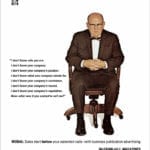Is Your Rural Sales Problem Sales Management or Sales Team?
Poor behaviour in children is often more about bad parenting than bad kids.
If you want to make more rural sales you need to learn how to relate and motivate more.
I came across this amazing sales manager research from the brilliant book The Challenger Sale based on a survey of 2500 Sales Managers in the US:
“63% of companies reported their sales managers do not have the skills and competencies they need as their sales model evolves. 9% say their sales managers don’t have the skills to be successful in their role currently.” (Source: Sales Executive Council)
Research from global firm Gartner across 7,300 sales employees states:
“The average frontline sales manager has seven direct reports but devotes just 9% of his or her time to actually developing them. More worrisome, 42% of managers simply lack the confidence to develop the skills that employees need today.”
“Just 38% of sellers report their manager helps them develop the skills they need for their role today, while only 34% report their manager helps them develop the skills they need for the future.”
What struck me most about these statistics was the fact that almost two thirds of sales teams think their sale manager is ineffective in her or his job and only a third think their sales managers can help them develop the right sales skills.
That makes for some expensive lost sales revenue, let alone sales team turnover.
I’m betting most rural reps don’t dare share their concerns with their sales manager due to the “control and command” nature of poor-performing sales managers we see. They are afraid of retribution, estrangement or loss of job.
So how can a rural sales team respect their sales manager if they don’t train and perform as they ask them to do?
Sales management is about sales leadership.
You have to put in the hard yards as well. Lead on the frontline shoulder to shoulder. Do the drills and skills that they do so they can see you are with them.
“What got you here won’t get you there.”
We often see high-performing rural sales reps promoted to the position of national sales manager but who then fail to make the transition.
The reasons are three-fold:
Reason #1: A great rural rep who can manage themselves is a vastly different skill set from managing many others
Reason #2: They don’t have the tools and training to multiply their success ie. what worked for them won’t work for others because every rural rep is different with a different persona, habits and background. One formula won’t fix all.
Reason #3: They stop learning because they think they have made it to the top.
Like a captain of any high performance sports team, you need to the best player on the pitch.
Richie McCaw was a brilliant example of leading by example and letting his play do his talking. He didn’t rip off his GPS monitor whilst training just because he was captain. His training stats were they for all to see. He got the same treatment as the rest of his team.
As a sales leader you will be judged by your actions rather than words.
Your behaviour will be closely scrutinised by your direct reports even if you can’t always see it. Anything you say or do – good or bad – will be enacted by those you manage as what’s expected.
It’s up to you how high you set the bar. But one thing’s for sure – your walk has to match your talk.
Are you Motivating or Demotivating Your Sales Team?
Sometimes Sales Managers don’t motivate but demotivate.
Instead of being mentors, we become tormentors borne out of frustration trying to rally our troops to higher honours. This can crush confidence and erodes hard-earnt trust.
Classic case in point: your rural sales rep is behind on their numbers and you come down hard on them at the end of the month asking them why.
This does nothing to motivate them. Instead of cause, you look at effect. You go critical instead of curious.
Your rural sales rep team will feel much more motivated and safer when they know you are there to support them right from the start, rather at the end when there is little you can do to help.
Ask them these questions at the start of the sales process instead of the end:
- Is this our ideal customer? How do we know? (use your qualifying criteria)
- What problem do they have that we can solve?
- What questions will we ask to uncover their true buying motives?
- What reference stories can we use to reduce their risk to purchase?
- What can we teach them that gets them to think about their situation differently?
- Who else do we know in the buying committee?
- Who are the key influencers we can influence?
- What help do you need from me and marketing to move this deal along?
- What debris do I need to clear for you?
- What probability do you think we have of converting this potential customer?
Doing these things will build much bigger, trust-based bonds that will see them walk through fire for you, go the extra mile and give it 110%.
Having their back means they will have yours.
What You Need To Do To Be An Effective Sales Manager
I think there are many factors that make an effective and motivating sales manager.
It’s never one thing but lots of things:
- Be available – think about the concept of “time well spent”. Making and taking the time to check in on them is vital. Knowing they know you are there for them matters. Where you spend your time tells them what your priorities are. Don’t make time for them and you send the signal that they are not a priority.
- Keep to your commitments – business gets busy and distractions and fire fighting can take us away from our core commitments like meeting, calling, connecting and communicating with you team. Make sure you are meeting with your rural sales team weekly and make it a mandatory meeting. “What you inspect gets respect.”
- Leave your ego at the door – just because you are a manager now doesn’t mean you’re too important. If you’re any good you have been in their shoes and know the trials and tribulations they face on the front line. It’s now all about them, not you.
- Serve them – your role is to be there to support and serve them rather than the other way around. You lead by allowing not micro-managing or you will only create dependencies and bottle necks.
- Focus on moving the middle – you need to focus your efforts and energies on the right people not the wrong people. Time is all you have and not every rural rep is created equal. Some are high performers, some low and some in the middle. Focus on moving the middle as that is where you will get your biggest bang for buck (see my blog on how SouthWest Airlines focussed on their middle tier customers not their lower tier customers based on the profitability of customers in the middle as opposed to the bottom)
- Drop command and control – “do as I say but don’t do as I do” is no way to earn the right kind of respect from your rural sales team. Be the example by your actions matching your words and always do what you said you’d do at the time you said you’d do it.
- Don’t break your promises – if you agree to a performance review or salary rise and you renege on it in the face of agreed numbers you will lose your potential next tier of performers pretty damn quick. They will see you or the company can’t be trusted so they will walk where your competitors will warmly welcome them.
Sometimes we think our rural sales problem is our rural sales team when we need to look in the mirror before we look out of the window.
By focussing on what we can do to help rather than hinder our people and motivate them in the right way, you and your rural sales team can be confident in creating and making more sales.
Have I got this right? What have I missed from my list for what makes a motivating and effective rural sales manager? What do you think?





